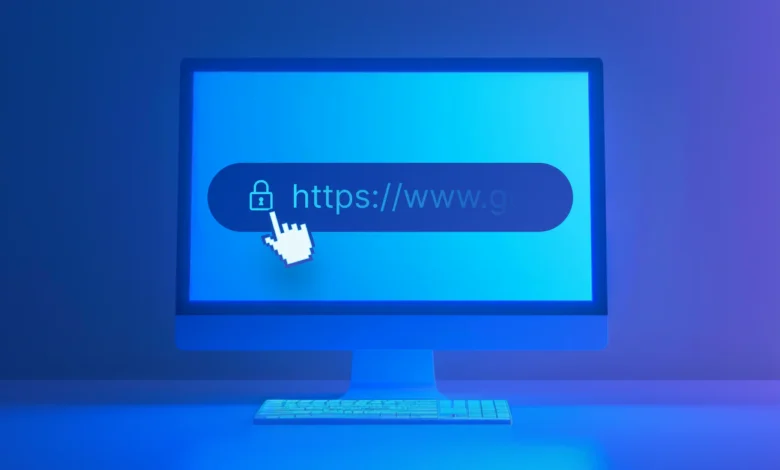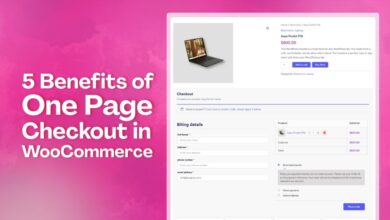Understanding the Cost of SSL Certificate in 2025: A Complete Guide

Securing your website is no longer optional—it’s essential. One of the most critical steps in safeguarding your website and gaining user trust is installing an SSL certificate. But when it comes time to buy one, many website owners ask: “What is the cost of SSL certificate?”
The answer isn’t always simple because SSL certificates come in various types and validation levels, with prices ranging from free to several hundred dollars per year. In this comprehensive guide, we’ll break down the costs involved, explore what affects SSL certificate pricing, and help you determine the best SSL solution for your website.
What Is an SSL Certificate?
An SSL (Secure Sockets Layer) certificate is a digital certificate that encrypts data transmitted between a user’s browser and a web server. It ensures that sensitive information—such as passwords, credit card numbers, and personal details—is securely transmitted.
SSL certificates also activate the HTTPS protocol and the padlock icon in browsers, signaling to users that a website is secure. Google now considers HTTPS a ranking signal, making SSL critical not only for security but also for SEO.
Types of SSL Certificates and Their Costs
The cost of SSL certificate primarily depends on the type you choose. Here are the main types:
🔹 1. Domain Validated (DV) SSL
- Validation: Basic domain ownership check
- Best For: Personal websites, blogs, small businesses
- Cost Range: Free – $30/year
💡 Examples:
- Let’s Encrypt: Free
- Comodo/Sectigo DV SSL: ~$5 to $20/year via resellers
🔹 2. Organization Validated (OV) SSL
- Validation: Domain + basic company verification
- Best For: Businesses, NGOs, internal apps
- Cost Range: $50 – $150/year
💡 Examples:
- Sectigo OV SSL: ~$60/year
- DigiCert Secure Site OV: ~$199/year
🔹 3. Extended Validation (EV) SSL
- Validation: Rigorous legal and operational checks
- Best For: E-commerce, financial, enterprise sites
- Cost Range: $90 – $400+/year
💡 Examples:
- DigiCert EV SSL: $300+
- GlobalSign EV SSL: ~$249/year
Special SSL Certificate Types and Their Costs
🔸 Wildcard SSL Certificates
- Purpose: Secure a domain and all its subdomains (e.g., *.example.com)
- Best For: Businesses with multiple subdomains
- Cost Range: $40 – $500/year
💡 Tip: A DV Wildcard is much cheaper than an EV Multi-Domain, but it offers less brand trust.
🔸 Multi-Domain SSL (SAN Certificates)
- Purpose: Secure multiple unique domains (e.g., example.com, example.org)
- Best For: Enterprises, SaaS providers, large orgs
- Cost Range: $60 – $700+/year, depending on domain count
🔸 UCC/SAN Certificates (Unified Communication Certificates)
- Often used in Microsoft Exchange environments.
- Can secure up to 250 domains.
- Cost Range: $100 – $800+/year
What Factors Affect the Cost of SSL Certificate?
- Validation Level
Higher validation means more rigorous checks and increased trust—thus, a higher cost. - Type of Certificate
Wildcard and Multi-Domain certificates cost more than single-domain SSLs. - Certificate Authority (CA)
Prices vary between providers. DigiCert and GlobalSign are premium; Sectigo and GoDaddy offer budget-friendly options. - Length of Term
Some providers offer discounts for multi-year plans, even though browsers now limit certificates to a max validity of 1 year, with automation available for renewals. - Resellers and Hosting Providers
You can often get better deals through SSL resellers or bundled with your hosting package.
Free vs Paid SSL Certificates: What’s the Difference?
✅ Free SSL (e.g., Let’s Encrypt)
Pros:
- 100% free
- Automated renewal
- Fast issuance
Cons:
- Only DV (basic validation)
- No warranty
- Limited customer support
- Short validity (typically 90 days)
💵 Paid SSL Certificates
Pros:
- Available in DV, OV, and EV
- Warranty coverage
- Strong customer support
- Better trust for businesses
Cons:
- Can be costly depending on features and provider
Bottom Line: Free SSL is suitable for hobby projects or small sites. But for business websites that handle sensitive data or require user trust, investing in a paid SSL certificate is essential.
SSL Certificate Cost Comparison (2025 Snapshot)
| Certificate Type | Provider | Starting Cost (USD/year) | Warranty | Best For |
| DV SSL | Let’s Encrypt | $0 | None | Blogs, personal sites |
| DV SSL | Sectigo via SSLs | $5 – $10 | $10K–$50K | Small businesses |
| OV SSL | Comodo | $60 – $100 | $50K–$250K | Mid-size companies |
| EV SSL | DigiCert | $300+ | $1.5 million | Banks, eCommerce |
| Wildcard DV SSL | Sectigo | ~$45 – $100 | $10K | Subdomain-heavy sites |
| Multi-Domain SSL | GlobalSign | $249+ | $500K+ | Multi-brand businesses |
Where to Buy SSL Certificates at the Best Price
Here are some reliable places to compare and purchase SSL certificates at affordable rates:
- SSLs.com – Cheap DV and Wildcard SSLs from top brands
- Namecheap – Budget-friendly with fast support
- GoDaddy – Easy management with hosting
- DigiCert – Premium enterprise-level options
- Comodo/Sectigo Resellers – Often cheaper than direct pricing
Can You Get Discounts on SSL Certificates?
Yes! Here’s how:
- Multi-year plans often come with discounts, even if technically renewed yearly due to browser policy.
- Buy during promotions or sales, especially around Black Friday.
- Use SSL resellers for better deals than direct CA pricing.
- Bundle with hosting – some providers offer SSL for free with plans.
Tips for Choosing the Right SSL Certificate
- For personal or non-commercial use → Free DV SSL
- For small businesses or portfolio sites → DV or OV SSL
- For e-commerce stores or login-based platforms → EV SSL
- For multi-subdomain projects → Wildcard SSL
- For multi-brand businesses or SaaS → Multi-Domain SSL
Also, check if your web host offers automatic SSL provisioning (like cPanel’s AutoSSL or Let’s Encrypt integration).
Is the Cost of SSL Certificate Worth It?
Yes—especially if you’re running a commercial website. Here’s why:
- Boosts Google rankings
- Increases user trust
- Helps prevent data breaches
- Ensures compliance with privacy laws (e.g., GDPR, PCI-DSS)
- Protects your brand reputation
Investing in SSL is not just about encryption; it’s about building a secure, trustworthy web presence.
Conclusion
Understanding the cost of SSL certificate is the first step toward making an informed decision for your online business. Whether you choose a free DV certificate or a premium EV certificate, it’s important to assess your site’s needs, trust requirements, and budget. CVE-2025-21587
In 2025, with cybersecurity threats on the rise and consumer expectations growing, securing your website with the right SSL certificate is more important than ever.


